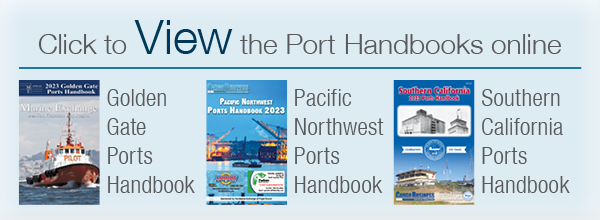|
By Anna Denecke, Associate, Blakey & Agnew, LLC
Congress and the Obama Administration are often accused of sidestepping important issues, and transportation funding is no exception.
In 2008, a specially convened National Surface Transportation Policy and Revenue Study Commission recommended to Congress several mechanisms to increase transportation revenue, including raising fuel taxes. A few years later, the 2010 Simpson-Bowles Plan included a directive to Congress to phase in a gas tax increase of 15 cents per-gallon. Congress declined to take action on either set of recommendations. Then, in 2014, the Administration released a four-year surface transportation bill without providing details on how to pay for it.
Year after year, our nation’s highways, bridges, and roads have suffered from underinvestment as a result of Congressional inaction. Fast forward to early 2015, and we might finally be seeing a light at the end of the (pardon the pun) long and decrepit tunnel.
On Feb. 2, in conjunction with his FY2016 Budget Request, the President released an outline of his new and improved GROW AMERICA Act. The updated bill includes a revenue source – a revamped corporate tax structure – that is similar to a proposal floated by unlikely duo Senators Rand Paul (R-KY) and Barbara Boxer (D-CA). Both plans tax corporations that currently keep their profits overseas.
Under the Obama plan, companies would pay a one-time, 14 percent tax rate to bring their earnings back to the U.S. – but these corporations would face taxes regardless of whether or not they chose to bring back their earnings. Estimates show the Obama proposal would create a $238 billion windfall of revenue, which would be deposited in the Highway Trust Fund, roughly matching the $238 billion expected gas tax revenue over the next six years.
Meanwhile, under the Boxer-Rand Invest in Transportation Act of 2015, companies that bring back overseas earnings over the next five years would subject those earnings to a 6.5 percent tax rate. Like the White House proposal, revenue from the repatriation of offshore profits would be deposited in the Highway Trust Fund to be used for infrastructure projects.
However, the Obama Administration proposal taxes all overseas profits and incentivizes companies to repatriate earnings right away. The Invest in Transportation Act offers a one-time repatriation holiday, which in the past Obama has opposed, saying that it incentivizes companies to keep future profits overseas while lobbying Congress for additional holidays.
The Obama and Rand-Boxer plans differ in structure and tax rate, but there’s room for compromise. A third proposal, introduced by Representative John Delaney (D-MD) and cosponsored by Richard Hannah (R-NY), could bridge the gap between the two repatriation-for-infrastructure-funding plans. The Infrastructure 2.0 Act creates the same framework as the President’s proposal, but sets tax rates for overseas earnings at 8.75 percent. Delaney’s bill
|

ptcahes the Highway Trust Fund hole for six years and creates a commission to study a longer-term revenue source.
Other proposals have been floated in both the House and the Senate that would fund a long-term bill without rewriting the corporate tax code. Representative Earl Blumenauer (D-OR) reintroduced a bill on Feb. 4 that would increase the gas tax by 15 cents over the next three years and index it to inflation. Blumenauer is in bipartisan company. In the last Congress, Sens. Bob Corker (R-TN) and Chris Murphy (D-CT) introduced legislation that would raise federal gas taxes by 12 cents over two years, and index the rate to inflation. Other ideas floated by lawmakers include capturing revenue generated from increased drilling on federal land, and abolishing the gas tax and replacing it with a carbon tax.
Perhaps the biggest indication of where Congress will find transportation revenue comes from its leadership. Powerful Ways and Means Chairman Paul Ryan (R-WI), who will be in charge of finding the funds for the House surface transportation proposal, expressed openness to establishing common ground with Obama over his tax proposal. House Speaker John Boehner (R-OH), meanwhile, indicated he’d be open to tax reform during a press conference in early January, but put the kibosh on a gas tax increase, saying it is "doubtful" that the votes are there. Senate Minority Leader Harry Reid (D-NV) was rumored to be developing a repatriation bill last Congress with Sen. Paul, that would essentially create the same structure as the current Boxer-Paul proposals.
Environment and Public Works Chairman Jim Inhofe (R-OK) and Finance Committee Chairman Orrin Hatch (R-UT) both will play key positions in the Senate during the surface transportation authorization drafting and funding process. They have both expressed tepid willingness to explore a gas tax increase, referring to it as a user fee. However, Senate Majority Leader Mitch McConnell (R-KY) shot down the idea during a 60 Minutes interview. "We know we’re not going to pass a gas tax increase," dismissed McConnell.
For now, the back-and-forth on how to fund a long-term surface transportation bill continues. However, given the recent slate of bills, hearings, and interviews, it’s clear that the issue is on lawmakers’ minds. Should they settle on a revenue generating mechanism in the coming weeks, Washington will need to agree on the details quickly. MAP-21 expires on May 31.
Blakey & Agnew, LLC is a public affairs and communications consulting firm based in Washington, DC.
|




